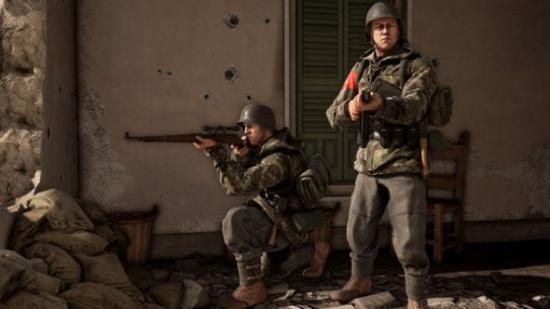If you want to know how tempting Epic’s new store is for game developers, here’s a statistic for you: had Battalion 1944 released on the Epic store and sold the same number of copies as it did on Steam, it “would have amassed an additional $350,000”.
That’s according to Joe Brammer, CEO of Battalion devs Bulkehead Interactive, in a guest post on GI.biz. Brammer says it’s important for you to know this, since “the majority of any profit [developers] generate” is reinvested in further development, “rather than buying luxury yachts”. Every penny counts, but the benefits are felt especially keenly by indies: Brammer says an extra $350,000 can keep the lights on for months at smaller studios, or fund a respectable marketing campaign to bring in more players, or an esports event, or new staff, or community managers to engage with fans. It would all help to grow and improve the game.
The difference in revenue is down to Epic taking a far more generous cut on sales in its store – 12% compared to 30% on Steam (though Steam recently announced that it will take less of a cut when sales pass certain million-dollar thresholds, in changes clearly designed to tempt triple-As, but which are largely meaningless for indies).
Obviously it’s doubtful to the point of absurdity to suggest that Battalion would have sold the same numbers on both stores, given how new and thus small Epic’s is compared to Steam, but you can see how tempting the more generous share might be. Combine this with some of Fortnite’s 200 million players going through the Epic store, and some exciting-sounding social and cross-platform features next year, and Epic could become a real threat to Steam. Indeed, there are signs of Steam already losing favour among some devs.
You can read Brammer’s article here, and should, as it’s very interesting. So far Valve’s response has been simply to revise Steam’s revenue splits as outlined above, but it’s certainly possible it will go further.
